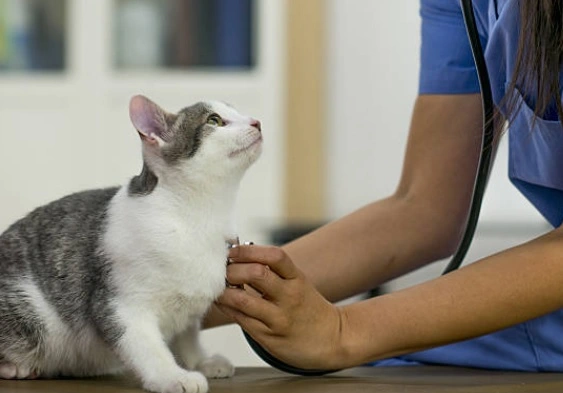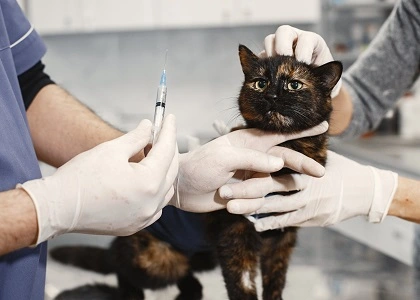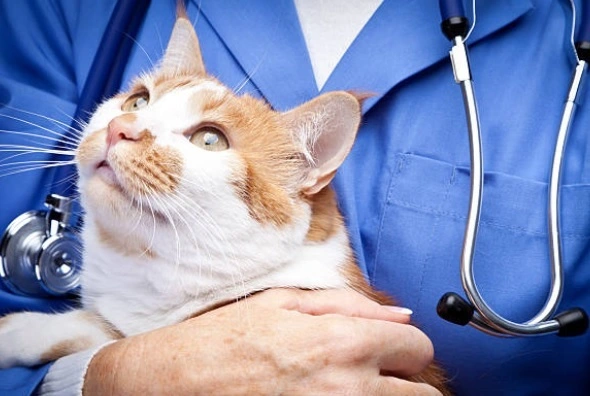It is tough to Deal with a cat that has recurrent seizures. Additionally, being a pet owner, deciding when to euthanize a cat with seizures is an extremely difficult decision. It’s deeply personal, but there are some guidelines to consider when evaluating your cat’s condition.
When to Euthanize a Cat with Seizures?
You should monitor the frequency and severity of seizures closely. Although deciding when to euthanize a cat with seizures is a tough decision. But If the severity of seizures happens more frequently, euthanasia may be done.
Specifically, look for:
- Cluster seizures, when multiple seizures happen in succession. These put felines at high risk of brain damage from oxygen deprivation.
- Status epilepticus, a life-threatening prolonged seizure state. This causes severe exhaustion and lasting neurological effects.
- Frequent grand mal seizures involving loss of consciousness, muscle rigidity, and violent jerking. If these are increasing and uncontrollable, your cat’s prognosis is poor.
Other Health Considerations
From time-to-time seizures signal an underlying illness or declining health. Brain tumors, kidney disease, infections, and other problems can trigger recurrent seizures.
- Brain tumors often cause seizures in older cats. Along with medication, radiation or surgery may help, but prognosis is poor. Euthanasia may need to be considered for brain tumor patients when seizures persist despite treatment.
- Diseases like feline leukemia, kidney disease, liver disease, anemia, infection, stroke or head trauma can also trigger seizures.
- With multiple health problems, euthanasia may be the most compassionate option to prevent further suffering.
Making the Decision to Euthanize a Cat
I strongly recommend you to consult honestly with your veterinarian about your cat’s prognosis and options. Along this, it is also very important to consider your cat’s age and overall vitality.

Therefore, I also suggest you realistically evaluate whether medication and treatment can provide a good quality of life. By following these factors, you can decide when to euthanize a cat with seizures:
- Have an open discussion with your vet about your cat’s condition, seizure frequency, medication effectiveness, prognosis, and projected quality of life. This will help inform your decision to euthanize a cat.
- Older cats with new onset seizures often have underlying terminal illnesses. If seizures can’t be managed with medication, euthanasia may be most appropriate.
- Be realistic about your cat’s prognosis and treatment options. Can medication control seizures? Will side effects negatively impact quality of life? Will invasive treatments provide real benefit?
Caring For Your Cat
If you manage your cat’s epilepsy, you can focus on maintaining the best quality of life for your furry friend. To do this, I suggest you observe your cat closely following seizures.

Tend to basic needs like food, water, rest, and medication administration. Following are some key tips that can keep your cat comfortable:
- Work closely with your vet to find the most effective anticonvulsant medication and dosage for your cat. Give all medications as prescribed to help control seizures.
- Monitor your cat closely after seizures. Allow rest and recovery. Check breathing, circulation, and temperature. Contact the vet with any concerns.
- Ensure your cat stays hydrated, nourished, and comfortable. Meet basic needs between seizures to support overall wellness.
When It’s Time to Say Goodbye and Euthanize a Cat
When seizures persist and you’ve reached the point of euthanasia, you should try to make the process peaceful. Prepare yourself and your cat for this final transition. I always follow these guidelines for my cat:
- When the decision is made, ask your vet to perform euthanasia gently. As I have noticed this brings comfort to your cat. My vets always accommodate my request and I am sure you will also do the same.
- I always prefer my home for the euthanasia of my cat. Therefore, I suggest you should consider an at home euthanasia service, it will be pleasant for your cat to stay in a familiar environment.
- You should also focus on the loving bond with your cat. Find solace knowing you’ve relieved their suffering.
Conclusion
According to my experience, it is complex to decide when to euthanize a beloved cat with uncontrolled seizures, and is highly a personal decision. While anguishing, consider the guidelines above when evaluating your cat’s condition and prospects for any quality of life moving forward. Focus on acting compassionately and alleviating suffering.


Leave a Reply